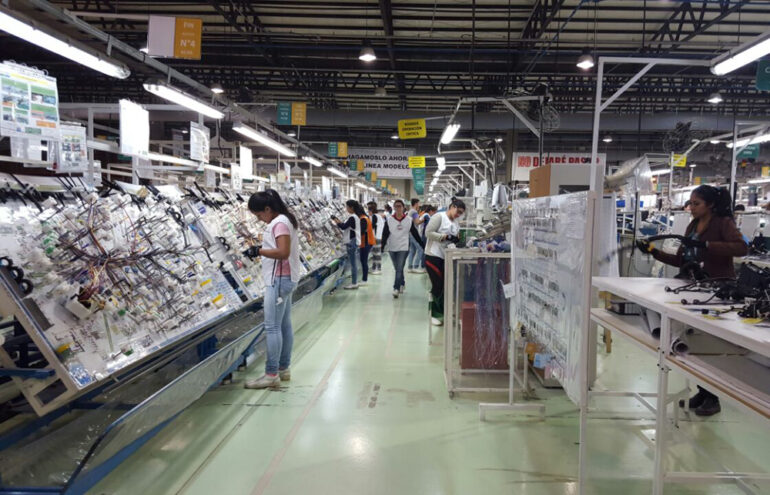In January 2025, the number of jobs created by Maquila industry companies reached 30,690, representing an increase of 734 jobs compared to December 2024. Additionally, sector exports amounted to $100 million in the year’s first month.
The Maquila regime allows companies who import materials, create products in Paraguay, and then export them to other countries, to benefit from exceptionally low levels of taxation as a strong incentive for companies to choose Paraguay as a place to invest.
According to data from the Chamber of Maquila Companies of Paraguay (Cemap), the year-over-year growth is even more significant, with an increase of 5,507 jobs compared to January 2024, representing a 22% growth.
The main sectors concentrating 72% of maquila employment are:
- Auto parts, leading with 7,159 jobs, stands out for its ability to absorb labor and integrate into global value chains.
- Textiles and apparel, with 7,100 jobs, an important driver of the national economy, generating a broad value chain from small workshops to large industries.
- Intangible services, including digital and technological services, employ 3,015 people, reflecting the growing importance of knowledge-based activities and technological innovation.
Sustained growth in exports from Maquila companies
Furthermore, maquila industry exports in January 2025 totaled US$100 million, marking a 34% increase compared to the same period in the previous year.
This positive performance demonstrates the sector’s ability to generate added value and contribute to the country’s trade balance, according to the Paraguayan Ministry of Industry and Commerce (MIC).
The trade balance for maquila industries in January 2025 was positive, with exports exceeding imports by 29%. This result reflects the incorporation of added value in national production and the sector’s ability to compete in international markets.
A government spokesperson praised the impact that Maquila companies are having on the Paraguayan economy: “The Maquila regime contributes to employment and exports and promotes value addition in national production, strengthening the country’s economy and sustainability.


